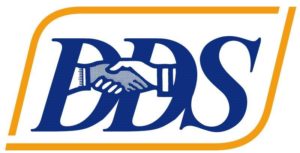Social Security Office Locations
A United States federal program of social insurance and benefits developed in 1935. The Social Security program’s benefits include retirement income, disability income, Medicare and Medicaid, and death and survivorship benefits. Social Security is one of the largest government programs in the world, paying out hundreds of billions of dollars per year.
Based on the year someone was born, retirement benefits may begin as early as age 62 and as late as age 67. The amount of income received is based on the average wages earned over the worker’s lifetime, with a maximum calculable amount of $102,000 as of 2008. Spouses are also eligible to receive Social Security benefits, even if they have limited or non-existent work histories.
Supplemental Security Income –SSI
Supplemental Security Income (SSI) is a Federal income supplement program funded by general tax revenues (not Social Security taxes):
|
|
|
CLICK ABOVE LINK for information sheets in multiple languages
CalFresh, known federally as the Supplemental Nutrition Assistance Program (SNAP), provides monthly food benefits to certain individuals and families with low-income. The amount of benefits a household receives is based on household size, countable income, and monthly expenses, such as rent and utilities. The program provides the monthly benefits on an Electronic Benefit Transfer (EBT) card which may be used at grocery stores and farmers’ markets that accept EBT cards.
Benefits for Adults Disabled Before 22
An adult disabled before age 22 may be eligible for child’s benefits if a parent is deceased or starts receiving retirement or disability benefits. We consider this a “child’s” benefit because it is paid on a parent’s Social Security earnings record.
The “adult child”—including an adopted child, or, in some cases, a stepchild, grandchild, or step grandchild—must be unmarried, age 18 or older, and have a disability that started before age 22.
·Employment Support for Young People
A guide to benefits for children with disabilities.
Medi-Cal is California’s Medicaid program. This is a public health insurance program which provides needed health care services for low-income individuals including families with children, seniors, persons with disabilities, foster care, pregnant women, and low income people with specific diseases such as tuberculosis, breast cancer or HIV/AIDS. Medi-Cal is financed equally by the State and federal government.
Medicare is for seniors and some individuals with developmental disabilities whose parents have retired, become disabled themselves, or who have deceased. Learn about Medicare health plans, which provide Part A and Part B benefits to people with Medicare, and what Part D covers. The plans include Medicare Advantage, Medicare Medical Savings Account (MSA), and Medicare Cost plan. The Center for Benefits offers resources in English and Spanish to help navigate the complexities of these programs. Read more here.





